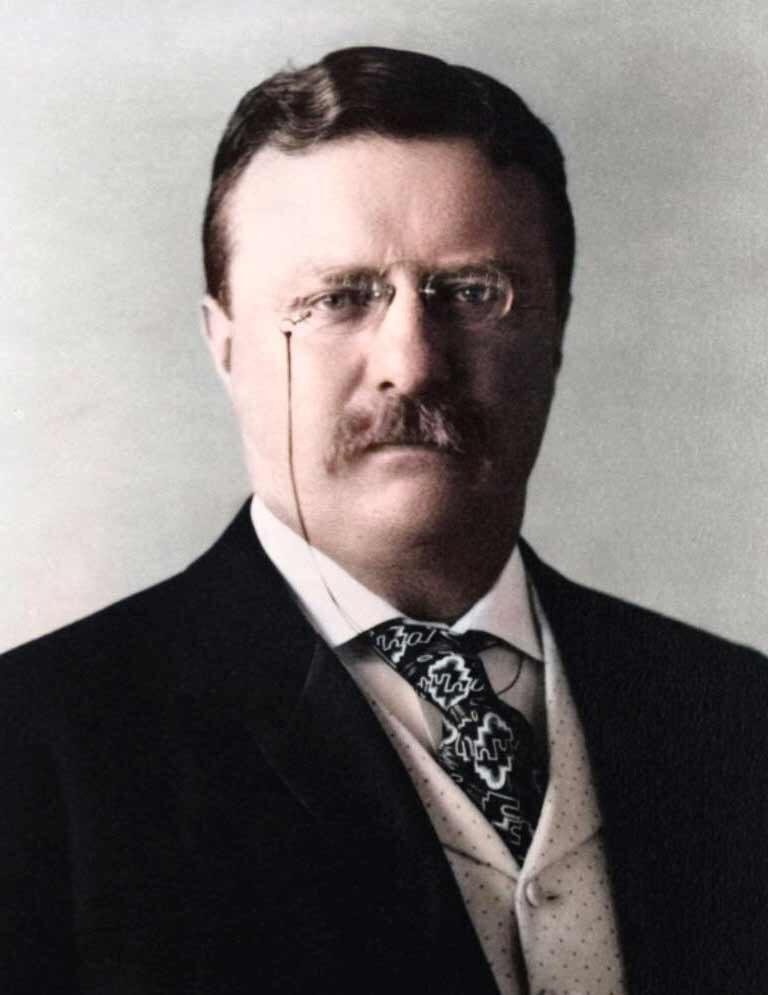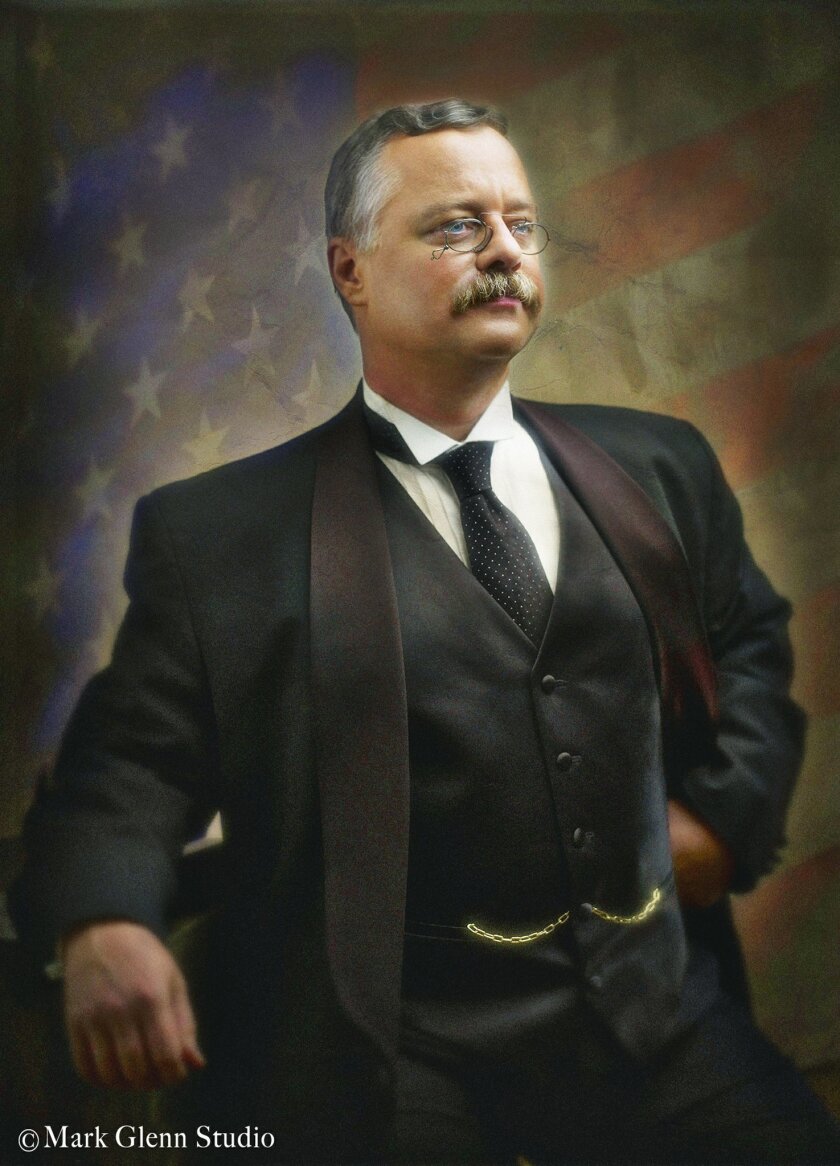Theodore Roosevelt, a towering figure in American history, assumed the mantle of the 26th President of the United States from 1901 to 1909, leaving an indelible mark on the nation’s landscape. His presidency was marked by a plethora of achievements and notable facts that have etched his name in the annals of political history. Roosevelt’s most iconic initiative, the Square Deal, was a groundbreaking home program that encapsulated three pivotal concepts, famously known as the “3 C’s.” These three pillars—conservation of natural resources, control of corporations, and the safeguarding of consumers—shaped Roosevelt’s vision for a fair and just society. The Square Deal was not merely a political slogan; it was a transformative agenda that sought to recalibrate the balance of power between various societal elements.
Theodore Roosevelt 26th US President Interesting Fun Facts
Theodore Roosevelt’s presidency was characterized by a multifaceted legacy, encompassing progressive policies, trust-busting, environmental stewardship, and adept crisis management. His enduring impact on the nation reverberates through the corridors of history, solidifying his status as a transformative figure in American politics. Internationally he was instrumental in ending the Russo-Japanese War which introduced him to the Nobel Peace Prize, and in facilitating the development of the Panama Canal. Know why Theodore Roosevelt is taken into account as one of many biggest U.S. Presidents via his main accomplishments and achievements.
1. The “3 C’s” Unveiled: Conservation, Control, and Consumer Safety
Delving into the essence of the Square Deal, the “3 C’s” outlined by Roosevelt stand as a testament to his commitment to progressive ideals. Conservation, the first ‘C,’ underscored the imperative to preserve and protect the nation’s natural resources, recognizing their finite nature. The second ‘C,’ control of corporations, reflected Roosevelt’s stance against monopolistic practices, heralding a new era of antitrust regulation. The third ‘C,’ consumer safety, emphasized the president’s dedication to ensuring the well-being of the American populace by instituting measures to safeguard their interests in the marketplace.
2. Trust-Busting and Conservation: A Dual Legacy
Beyond the conceptual brilliance of the Square Deal, Roosevelt earned acclaim for his vigorous pursuit of trust-busting, dismantling monopolies that threatened fair competition. His robust antitrust policies reshaped the economic landscape, promoting a more level playing field for businesses. Simultaneously, Roosevelt’s dedication to conservation manifested in tangible actions, with the establishment of national parks and monuments, leaving an enduring environmental legacy for future generations.
3. Theodore Roosevelt’s Literary Legacy
Theodore Roosevelt, the 26th President of the United States, was not only a statesman but also a prolific writer, leaving an indelible mark on the literary landscape. One of his most notable literary contributions is the e-book titled “The Naval War of 1812.” This masterpiece delves into the intricacies of naval battles and technological advancements during the conflict between the United States and the United Kingdom in 1812.
Roosevelt penned this work at the young age of 23, showcasing an intellectual prowess that would later define his career. “The Naval War of 1812” is not merely a book; it stands as a significant achievement in its field, marked by meticulous research and insightful analysis. It serves as a testament to Roosevelt’s intellectual depth and sets the stage for his future endeavors.
4. Roosevelt’s Ascension and Naval Impact
The success of “The Naval War of 1812” foreshadowed Roosevelt’s remarkable trajectory in public service. Rising through the ranks, he became the Assistant Secretary of the Navy. During his presidency, the United States underwent a transformative shift in naval power, ascending from the fifth-largest navy to the third-largest on the global stage. Theodore Roosevelt’s influence extended far beyond the written word, shaping the very fabric of the nation’s military strength.
His tenure as Assistant Secretary of the Navy marked a pivotal period, laying the foundation for the United States to become a naval powerhouse. Roosevelt’s strategic vision and commitment to naval development were instrumental in reshaping the nation’s role on the world stage.
8. The Enigma of Roosevelt’s Memory
Among Roosevelt’s many intriguing qualities was his claim to possess a photographic memory—an assertion that, though challenging to substantiate today, adds to the mystique surrounding this multifaceted figure. Biographer and historian Edmund Morris delves into the depths of Roosevelt’s memory, providing compelling evidence of his extraordinary cognitive abilities.
While the concept of a photographic memory remains elusive and subject to debate, documented instances reveal Roosevelt’s ability to recall obscure poetry and other content with remarkable accuracy over a decade after initially encountering the material. This cognitive prowess added another layer to Roosevelt’s complex persona, solidifying his status as a unique and intellectually gifted individual.
9. The 1902 Coal Strike: A Presidential Intervention
One of Roosevelt’s defining moments in crisis management was his adept handling of the 1902 coal strike. Faced with a labor dispute that threatened the nation’s energy supply during a harsh winter, Roosevelt intervened decisively. His negotiation skills and ability to bring stakeholders to the table led to a resolution that averted a potential catastrophe. This episode showcased Roosevelt’s leadership under pressure, cementing his reputation as a president who could navigate tumultuous waters with skill and diplomacy.
10. Roosevelt’s Political Rift within the GOP
The Republican leadership, despite its initial support for Roosevelt, found itself at odds with the rising Bull Moose Republican. TR’s reluctance to nominate fellow Republicans for bureaucratic positions earned him the ire of influential GOP figures, notably Mark Hanna and Thomas Platt. The disgruntled party bosses, eyeing a strategic move, saw an opportunity to “kick Roosevelt upstairs,” a maneuver that unfolded due to Roosevelt’s role as the vice-presidential nominee in 1900 for then-President William McKinley.
11. Unexpected Succession: McKinley’s Untimely Exit
Roosevelt’s ascent to the presidency was not part of the original plan. The unexpected turn of events occurred when McKinley fell victim to an assassin’s bullet in 1901. As the heir to the presidency, Roosevelt reluctantly assumed the role, setting the stage for his subsequent run in the 1904 presidential election. Contrary to expectations, Roosevelt’s political trajectory was reshaped in the crucible of McKinley’s tragic demise.
17. Roosevelt’s Diplomatic Triumph: The Russo-Japanese War
The Russo-Japanese War, a geopolitical clash over imperial ambitions in Manchuria and Korea, became a pivotal moment for Roosevelt’s diplomatic prowess. In 1905, he successfully persuaded the warring parties to convene a peace conference in Portsmouth, marking a crucial chapter in Theodore Roosevelt’s legacy. His persistent and effective mediation culminated in the signing of the Treaty of Portsmouth on September 5, 1905, bringing an end to the conflict and earning Roosevelt the 1906 Nobel Peace Prize—making him the first American laureate.
18. Progressive Reforms: Roosevelt’s Legislative Agenda
Responding to public outcry against the adulteration and misbranding of food and drugs, Roosevelt championed legislative reforms. In 1906, he urged Congress to pass the Pure Food and Drug Act and the Meat Inspection Act. The former sought to eliminate impure or falsely labeled food and drugs from the market, requiring active ingredients to be disclosed on drug packaging. Moreover, the legislation established purity standards set by the US Pharmacopeia. The latter aimed at ensuring the sanitary conditions of slaughter and processing, preventing the sale of adulterated or misbranded meat and meat products.
26. The Spanish-American War and Roosevelt’s Rough Riders
More Interesting Articles
- 140 Interesting Facts About Madonna
- 142 Interesting Facts About Justin Bieber
- 35 Interesting Facts about Victor Hugo
- 60 Interesting Facts About Robert De Niro
- 40 Alfred Nobel Interesting Facts for All Ages
- 22 Interesting Facts About Kelli Williams
- 32 Interesting Facts About Woody Allen
- 25 Uma Thurman Important Facts
- Christopher Columbus Important Facts
- Sir Walter Raleigh Facts to Know about A Legend
- 37 Interesting Facts about Pablo Picasso
- 30 Interesting Facts About Frank Sinatra
- 18 Interesting Facts About George Clooney
- 20 Interesting Facts About Katy Perry
- 28 Interesting Facts About Demi Moore Bio
- 35 Interesting Facts About Novak Djokovic
- Rishi Kapoor – Biography | Movies | Achievements
- Irrfan Khan – Biography | Contribution | Achievement
- 75 John Lennon Interesting Facts
- 58 Drew Barrymore Interesting Facts for Fan

